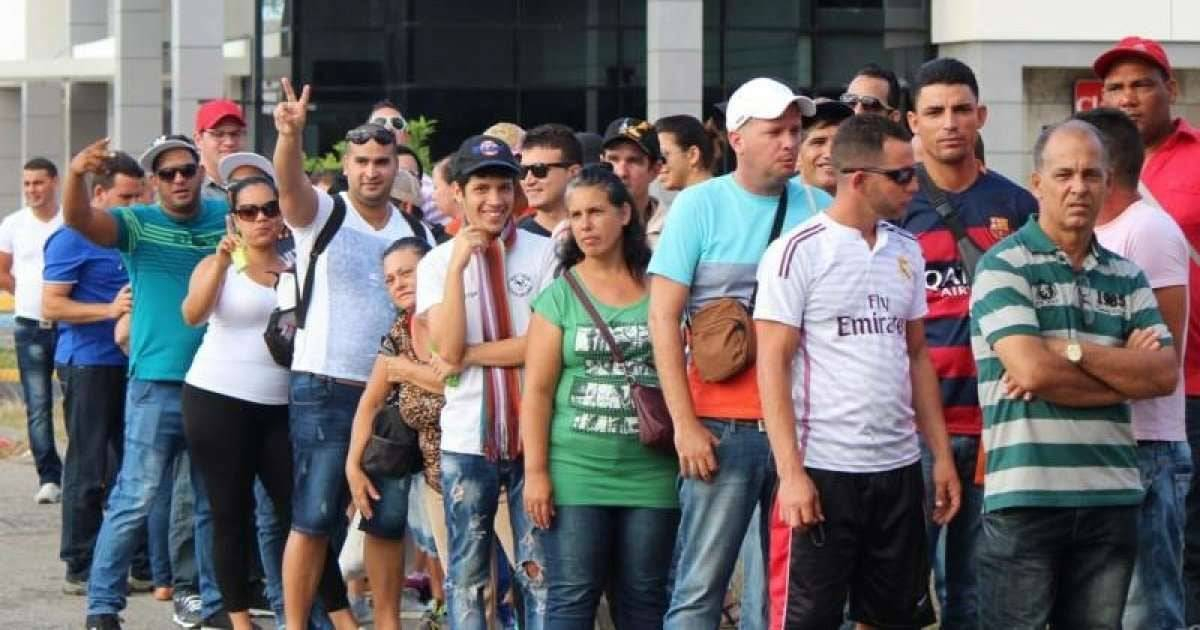The Uruguayan government has enacted a new decree that will allow thousands of Cubans in the country to regularize their immigration status, a long-awaited relief for undocumented individuals who have been advocating for change for months. After years of urging the administration of President Luis Lacalle Pou to grant them residency in the South American nation, Cubans and other immigrants requiring visas to enter Uruguay will finally have access to legal status.
The regulation, signed by the Ministry of Foreign Affairs and the Ministry of the Interior, enables undocumented individuals to legalize their status through "residency by affiliation," a legal framework benefiting asylum seekers who do not meet the criteria for refugee status. This measure, published on Thursday, will benefit approximately 20,000 people living irregularly in the country, most of whom are Cuban, acknowledged the government.
"This is a significant step addressing the situation of thousands of migrants entering the national territory as asylum seekers, and who remain awaiting a resolution that, in most cases, is negative due to non-compliance with the conditions to access that status," the resolution states.
The resolution further explains that "individuals who are rejected or withdraw from the asylum process and who, due to their origin, require visas to enter the country, remain in Uruguay irregularly without a legal framework to resolve their situation, which also prevents the possibility of family reunification."
Nevertheless, the decree signed by Lacalle Pou and Ministers Omar Paganini and Nicolás Martinelli provides a legal solution to this issue. The Residency by Affiliation decree outlines three types of residency: permanent residency through labor or self-employment, permanent family residency, and renewable temporary residency for education purposes.
Currently, the Commission of Refugees (CORE), the body responsible for processing asylum applications, has over 24,000 pending applications, mostly from Cuban nationals or individuals from other countries requiring visas. These individuals have long complained that without regularization, they cannot secure jobs or education for their children.
A census published in 2023 confirmed that Cuban migrants make up 20% of the foreign population in Uruguay, with thousands trapped in a legal limbo from which they can now escape thanks to the new decree. However, as of April, around 5,000 Cubans were in a "migration limbo," lacking refugee status and unable to withdraw their asylum applications to apply for permanent residency, which would allow family reunification.
Organizations representing Cubans in Uruguay raised the alarm, according to a report by the Spanish newspaper El País. Lacalle Pou, who has been openly critical of Latin American populist regimes, stated that Cuban migrants come to Uruguay because they have no other choice.
Understanding the New Decree for Cuban Migrants in Uruguay
This section addresses some common questions regarding the new decree affecting Cuban migrants in Uruguay.
What is the purpose of the new decree in Uruguay?
The new decree aims to regularize the immigration status of thousands of undocumented individuals, primarily Cubans, who have been living in Uruguay without legal status.
Who signed the new decree?
The decree was signed by President Luis Lacalle Pou, Minister of Foreign Affairs Omar Paganini, and Minister of the Interior Nicolás Martinelli.
How many people will benefit from the new decree?
The decree will benefit around 20,000 people who are currently living in Uruguay without legal status.
What types of residency does the new decree offer?
The decree offers three types of residency: permanent residency through labor or self-employment, permanent family residency, and renewable temporary residency for education purposes.
